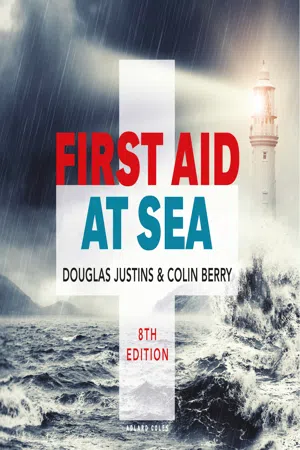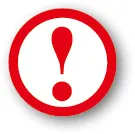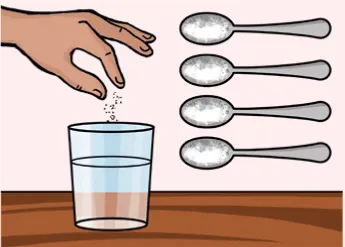![]()
Sudden Illness
Abdominal pain
Numerous possible causes. Important to identify the person who needs urgent medical attention. He/she will suffer more severe long-lasting pain that may be constant or occur in recurrent spasms. The pain may be localised or spread over whole abdomen. The abdomen will be tender when pressed and may be very rigid. The sufferer may also have fever, nausea and vomiting or generalised illness. He/she may develop shock. See here.
Treatment
Rest, treat shock, give pain relief, nothing to eat, sips of water only. Urgent help is needed.
◼Indigestion
Indigestion is a common cause of abdominal pain. The pain is usually restricted to the upper abdomen and may follow heavy alcohol intake and rich food. The abdomen is not tender or rigid.
Treatment
Frequent small sips of water, beware of dehydration, take antacid or omeprazole. Children are more liable to become severely dehydrated and should be encouraged to drink when ill.
Allergies
There is increased awareness about allergic reactions to foods, stings and medicines. Crew members with known allergies should alert other crew before sailing and avoid triggering agents (e.g. nuts, seafood). Known food triggers should probably be avoided for the whole crew.
Reactions can be mild (rash, redness, itchiness, wheezing, runny nose) and can be treated with antihistamine cream or tablets (e.g. chlorphenamine). Symptoms should settle once the allergic stimulus has been removed.
Anaphylaxis
Severe breathlessness, wheezing and/or collapse (anaphylaxis) is a medical emergency and requires full BLS – Basic Life Support (here–here). Crew members with known severe allergies should carry at least two epinephrine (adrenaline) auto-injectors (e.g. Epipen) and one injection should be administered immediately once severe symptoms have developed. DO NOT delay administration.
Back pain
Back pain may develop following an accident, or heavy lifting, or for no apparent reason. There may be a history of previous back problems.
Treatment
Rest and painkillers. If there is numbness and weakness in the legs, or if bladder and bowel function are disturbed, seek help urgently.
Chest pain
May be caused by heart attack (see here), indigestion, oesophagitis, chest infection, fractured ribs, torn cartilage, or muscle strain.
Treatment
Painkillers – but avoid ibuprofen if indigestion is suspected. For indigestion and oesophagitis give medications such as omeprazole and Gaviscon.
SIGNS OF POSSIBLE HEART ATTACK
+Heart rate above 100 or below 50 per minute
+Irregular heart beat or pulse
+Weak, thready pulse
+Breathing rate above 30 per minute
+Reduced consciousness
+Sweating
+Vomiting
+Pain spreading to jaw, arms or back
+Known history of heart disease
Sudden Illness
Constipation
Common problem at sea and even affects those who have no problems ashore. Poor diet, relative inactivity, dehydration and reluctance to use facilities are common causes. Crew members should be encouraged to drink water and soft drinks regularly and to eat fresh fruit and vegetables when available. Constipation lasting for a few days may contribute to the formation of piles (haemorrhoids) which may be painful and bleed. Special cream may alleviate the symptoms but will not treat the constipation.
Treatment
Rehydrate with non-alcoholic and caffeine-free drinks and take paracetamol or ibuprofen for pain. Take senna tablets if constipation persists.
Diabetes
Diabetics should not go to sea without taking adequate supplies of medication and instructing other crew in the management of potential problems. A diabetic may become unconscious if the sugar content in his blood is too high (insulin is needed) or too low (sugar is needed).
Treatment
If any doubt exists, it is advisable to give sugar first – sweets, soft drinks, pure sugar. Giving insulin inappropriately is dangerous. Urgent help is needed if recovery is not rapid.
Diarrhoea
Often follows some dietary indiscretion (food or water) but may be associated with other causes. In children in particular the amount of fluid lost from the body can be very serious.
Treatment
Encourage copious fluid intake (water with one teaspoon of salt and four teaspoons of sugar per litre); loperamide is a popular anti-diarrhoeal medication.
Rehydration solution
4 tsps sugar
1 tsp salt
1 litre water
Earache
Infection in the outer ear is common in hot climates and after swimming. The ear canal appears red and discharges.
Treatment
Painkillers. Clean the outer ear very gently and insert ear drops.
Infection in the middle ear may occur during a common cold. The pain is often severe and associated with fever and general illness. Eventually the ear drum may burst and release fluid trapped in the middle ear.
Treatment
Painkillers and antibiotics. Seek help if the pain increases. NEVER insert any object deep into the ear.
Epilepsy
Epileptics should not go to sea without taking adequate supplies of medication and informing other crew of potential problems. Most epileptic fits are self-limiting and should be treated by minimising damage to the body. The patient may fall to the deck or thrash arms and legs in an alarming manner, so try to protect him or her.
Treatment
Putting a piece of cloth between the teeth may reduce damage to the tongue. After a fit the patient may enter a deep sleep and should be placed in the recovery position while keeping a close watch on the airway. Seek help.
Eye problems
Many eye problems and injuries are potentially serious. Worrying symptoms include: pain, red eye, loss or blurring of vision, sensitivity to ...


